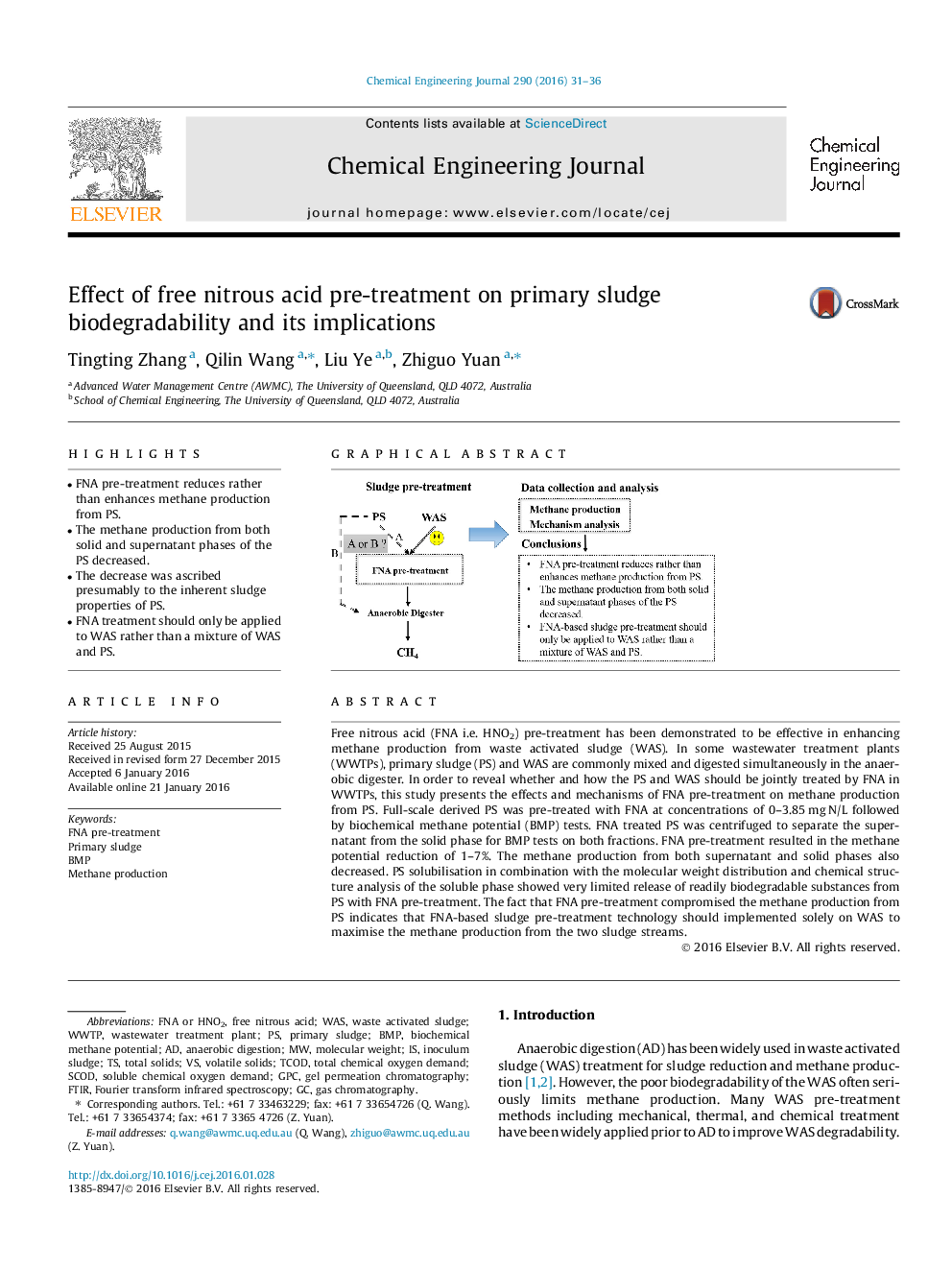| Article ID | Journal | Published Year | Pages | File Type |
|---|---|---|---|---|
| 145750 | Chemical Engineering Journal | 2016 | 6 Pages |
•FNA pre-treatment reduces rather than enhances methane production from PS.•The methane production from both solid and supernatant phases of the PS decreased.•The decrease was ascribed presumably to the inherent sludge properties of PS.•FNA treatment should only be applied to WAS rather than a mixture of WAS and PS.
Free nitrous acid (FNA i.e. HNO2) pre-treatment has been demonstrated to be effective in enhancing methane production from waste activated sludge (WAS). In some wastewater treatment plants (WWTPs), primary sludge (PS) and WAS are commonly mixed and digested simultaneously in the anaerobic digester. In order to reveal whether and how the PS and WAS should be jointly treated by FNA in WWTPs, this study presents the effects and mechanisms of FNA pre-treatment on methane production from PS. Full-scale derived PS was pre-treated with FNA at concentrations of 0–3.85 mg N/L followed by biochemical methane potential (BMP) tests. FNA treated PS was centrifuged to separate the supernatant from the solid phase for BMP tests on both fractions. FNA pre-treatment resulted in the methane potential reduction of 1–7%. The methane production from both supernatant and solid phases also decreased. PS solubilisation in combination with the molecular weight distribution and chemical structure analysis of the soluble phase showed very limited release of readily biodegradable substances from PS with FNA pre-treatment. The fact that FNA pre-treatment compromised the methane production from PS indicates that FNA-based sludge pre-treatment technology should implemented solely on WAS to maximise the methane production from the two sludge streams.
Graphical abstractFigure optionsDownload full-size imageDownload as PowerPoint slide
